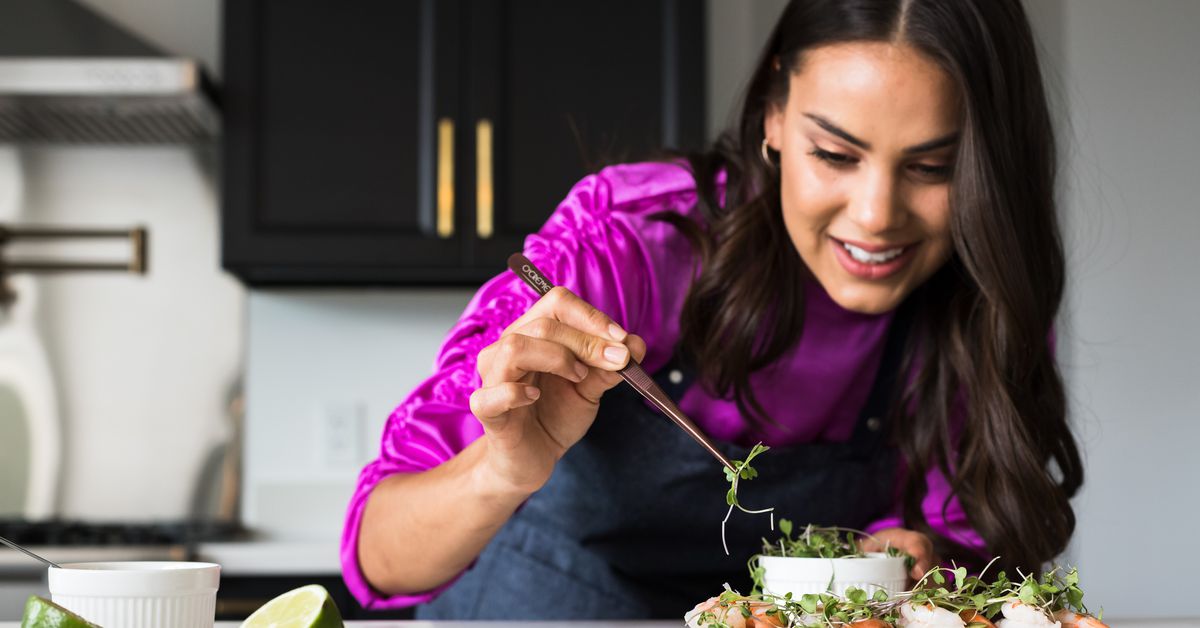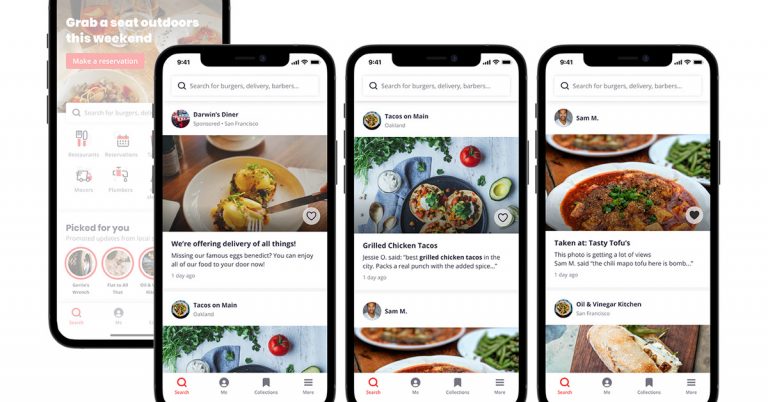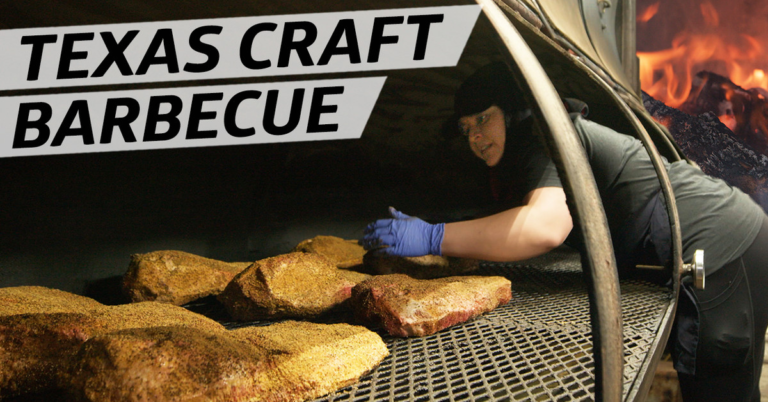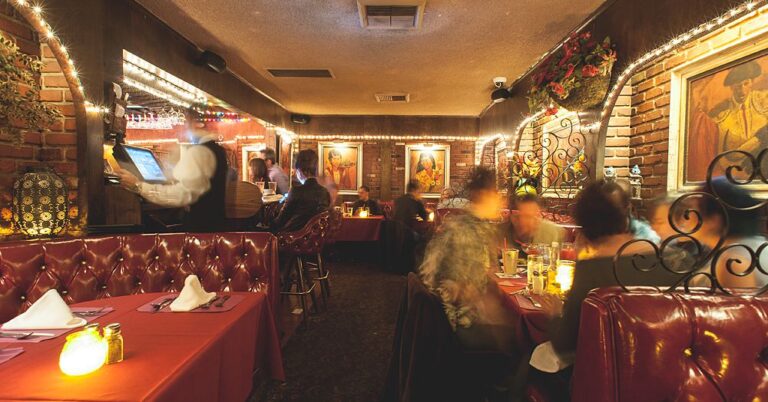Native Chef Pyet DeSpain Takes Indigenous Cooking to the Next Level
“If I’m going to be this person that has such a big platform to influence people,” says chef Pyet DeSpain, “then I better have something damn good to say.”
DeSpain’s platform moment is here, following her win on the first season of Fox’s multi-tiered cooking competition show Next Level Chef. There was host Gordon Ramsay alongside chefs Richard Blais and Nyesha Arrington, there were the thrown plates and “do better” screams, and there were the lights and the moving set pieces. Now, here is DeSpain. “The message is going to be: I am a Native American, Mexican American woman,” she says, “and I got to where I am with all my passion and all my teachings.”
After working for years to reconnect with her roots and spending several grueling weeks competing alongside some of the best chefs in the country on national television, DeSpain is now beginning to embark on one of her most personal projects to date: a planned Los Angeles pop-up slated to run mid-April that will put her Indigenous American fusion cuisine on full display. Shkodé — which translates to fire in the Potawatomi language of the Prairie Band Potawatomi Nation tribe — is in the works for April 16 and 17, though given the shifting nature of her profile and the attention on her cuisine, the limited-run event is still being tweaked to accommodate the most people. It’s a limited run, open for only one weekend for now, but the impact for DeSpain and the Los Angeles food scene could be huge.
The incoming Shkodé will feature a blend of the chef’s Native American and Mexican roots with her culinary training and lessons learned while on the show. Beans, squash, and corn, a trio called the “Three Sisters,” has great significance in Indigenous cuisine and will be a prominent part of DeSpain’s cooking; corn is also a pillar in Mexican cuisine, making it another bridge between her Indigenous and Mexican cultures. The menu will offer dishes like bison empanadas with a salsa verde, braised bison meatballs with wojapi sauce, and vegan and vegetarian options such as a squash blossom harvest salad with maple vinaigrette. DeSpain’s goal is to continue to celebrate Indigenous cuisines and bring more awareness of Native cultures to Los Angeles and its surrounding communities. “I’ve been working toward [really shining] a light on the underrepresented people in this country in my field,” she says.
A longtime chef who has spent years working the private home cooking circuit around Los Angeles, DeSpain might be lesser known than some LA culinary names — but not for long. She’s embracing the spotlight she’s been given, using her reach (including 35,000 Instagram followers thanks to appearances on Buzzfeed’s Tasty channel and now Next Level Chef) to keep followers informed about Indigenous food while supporting other Native chefs and events.
Though part of the Prairie Band Potawatomi Nation, the 31-year-old spent the first years of her life on the Osage Nation reservation in Oklahoma with her maternal grandmother, learning Native foodways. Eventually, the family moved to Kansas City, where DeSpain began to embrace her paternal family’s side and their Mexican heritage and culinary traditions as well, culminating in a graduation from the city’s L’Ecole Culinare culinary school. It’s been a winding path for the chef, one with deep, sometimes wounded, roots. DeSpain didn’t always feel seen or represented in her classrooms or her work, so making space for herself and others has been central to her culinary mission.
“There’s a long history of removing the voices of Indigenous people,” says DeSpain. “If there’s anything I’m going to do to be successful, I want [people] to know my culture, where I grew up, how I grew up, why I am the person that I am.”
On the reservation, DeSpain ate a variety of things; it was a mixture of Native and American food or whatever people had access to. Her grandmother would make everything from sloppy joes and chili dogs to bison stews and meat pies. Braised food was a central component of the food she ate on the reservation. “There were no ovens pre-colonization,” she says. “Everything was cooked for a long time and stewed, and that’s how they would get things to be as flavorful as they were.” In Kansas City, DeSpain’s Mexican family would compete to make tamales together, everyone pitching in to see who made the best version.
In culinary school, DeSpain says that she found herself immersed in learning about food, though she struggled to find her identity in the dishes of other cultures. There were never any traditional Indigenous recipes represented in her classes or in the few resources available outside the school’s walls. When it came time to develop her own culinary direction, DeSpain knew where to source her passion. “It really boiled down to: I need to reconnect with my Native roots, and I need to reconnect with Native food to figure out what that is,” she says.
What makes Indigenous food so special, DeSpain says, is not just the food itself, but the significance behind everything, from wojapi and fry bread to bison — the most significant animal protein for many Native Americans. Wojapi is a braised berry sauce traditionally made from chokecherries, a less sweet wildberry compared commonly to blueberries and blackberries. The berries are slowly cooked down to form a semi-thick braising sauce.
:no_upscale()/cdn.vox-cdn.com/uploads/chorus_asset/file/23286044/12321Pyet__55_of_1_.jpeg)
Fry bread has a more complicated history. It was created post-colonization after Native Americans were forced from their original lands to live on reservations; these communities made cultural adaptations to survive. Unable to grow food the way they were used to, Native communities had to rely on government rations like sugar, flour, and other processed foods. “There’s kind of like a love-hate relationship that we all have with fry bread,” says DeSpain. “It’s one of those things that we were forced to create.” It’s an inexpensive dish, just flour and water combined to form a biscuit-like dough that is then fried and eaten with honey, stews, and at almost every family gathering.
In Los Angeles, DeSpain spent years growing her private chef resume, cooking food for families — food that looked nothing like what her family used to eat. After a year of meal prepping for clients, she hosted a five-course dinner for her closest friends, cooking a table full of Native American foods and inviting Aztec dancers to perform a sacred ceremony and blessing. “It was such a moment for me and I was so proud of it,” DeSpain says. “They were able to eat food from my heritage, from my culture, and also share the dancing, and the sacredness of food and medicine and our connectedness with the universe. It just clicked.”
She closes her eyes when revisiting those memories of going home, of powwows and drums. “Once I left the reservation at a young age and moved to a bigger city I just saw less and less of my people,” DeSpain says. “I felt like there was this thing that was missing in my life.”
It’s that feeling of detachment that she says fueled her to reconnect with the Native community. But Shkodé is certainly not the end. For DeSpain, it’s not just about finding success as a chef, it’s about helping diners understand why these cuisines are meaningful.
“I want Indigenous food to be a part of the conversation in the culinary world,” DeSpain says. “There’s no other people on the earth that respect [food] more than Indigenous people. How can you have a sense of respect for food and not have a sense of respect for the people that care for the earth the way that Indigenous people do?”
Pyet DeSpain is the winner of the first season of Fox’s Next Level Chef, and operates a pop-up called Shkodé. She lives in Los Angeles.






